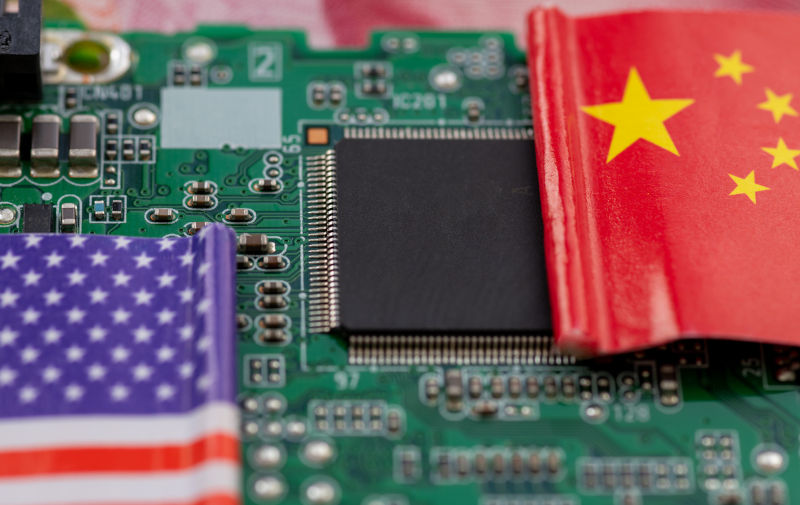Overproduction is OK as long as it’s done by anyone except China
July 24, 2024
It makes sense for Beijing to expand the services sector, but none for the US to transfer higher productivity in services to lower one in manufacturing.
So this is how Donald Trump repays his legions of fans in Taiwan, especially those from the ruling Democratic Progressive Party. “Taiwan took our chip business from us,” the Republican presidential candidate told Businessweek. “I mean, how stupid are we? They took all of our chip business. They’re immensely wealthy.”
It’s true Taiwan is a semiconductor-manufacturing powerhouse, which produces 92 per cent of the world’s most advanced chips. But it’s basically one giant chip foundry, not a chip design business.
That makes all the difference. While the foundry business is reasonably profitable because of the island’s global dominance in production, it’s the latter that walks off with most of the profits. It’s America that is immensely wealthy, Taiwan is merely well-off.
A starker example of this basic lesson in comparative advantage is Apple and Foxconn. Apple designs the iPhones and walks off with most of the profits while Foxconn produces them and runs a slim profit margin. And that economic reality can be cruel; you have had Foxconn workers driven under pressure to commit suicide but not Apple employees.
I don’t want to pick on Trump; the guy’s just been shot in the ear. The problem is that he is just one of the world’s most consequential leaders who think the same way about the need for manufacturing supremacy. But if China is the evil overproducer and everyone else wants to do the same, where does that leave us? Worsening overproduction for the world? For ease of reference, let’s call it excessive industrial policy.
To qualify, industrial policy means picking manufacturing favourites, by handing preferential treatment to some, but not others. The traditional Western critique is that it’s wasteful and inefficient; the “winners” can produce more than the market needs (positive overproduction?), while the “losers” produce what nobody wants (negative overproduction?).
But how do you judge if someone is overproducing? Is it Chinese overproduction, say, to sell affordable and well-made electric cars to Americans and Europeans? Now many of those consumers have been denied a choice because governments are putting up high tariffs.
Consider India. Prime Minister Narendra Modi’s “Made in India” is now a decade old. The aim is to turn the country into a manufacturing powerhouse to rival China. When Modi first came to power, few people outside India paid much attention to the programme; some free-market neoliberal economists even attacked it as industrial policy. Back then, that was the International Monetary Fund orthodoxy. How times have changed!
Now, every Western leader, pundit and their dogs are cheering Modi on – to compete and outdo China. Apparently, the West, led by Washington, doesn’t mind anyone else doing what China does so long as it’s not China. If India wants to do it, well, let’s throw more money and investment their way.
Now, consider the United States. It often makes sense for developing economies to pursue industrial policy, but developed ones, and the world’s biggest at that? That’s what Trump wants to do, and it’s not just now but back when he was first in the White House. And for all his animus against Trump, Joe Biden has doubled down on outright industrial policy. Bring back manufacturing, that’s what both men want.
However, 85 per cent of Americans work in services while China has only half that. Almost one in five Chinese work in manufacturing, as opposed to a mere 8 per cent in the US.
US worker productivity is much higher. Many economists attribute high productivity to the predominance of services over manufacturing. Therefore, it makes sense for China to expand its services sector. It makes no sense for America to redistribute higher productivity in services to a lower one in manufacturing. It’s no accident that TSMC, Taiwan’s chip-making darling, has trouble finding qualified local workers for its new US foundries.
Well, it makes political sense because that helps “contain” China with US-made industrial policy. Colloquially, it’s called cutting off one’s nose to spite one’s face.
Republished from South China Morning Post, July 19, 2024

